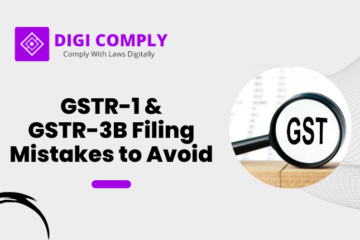Prior to the introduction of the Goods and Services Tax (GST) on life insurance policies, premiums for such policies were subject to various service taxes, which included the Basic Service Tax, Swachh Bharat Cess, and Krishi Kalyan Cess, collectively amounting to a 15% tax rate.
With the implementation of GST, the taxation landscape for life insurance policies underwent a change, as policyholders were now required to pay GST according to the terms of their respective policies.
This article aims to delve into the comprehensive impact of GST on Life Insurance Policies in India.
- One of the notable effects of GST on life insurance plans was the increase in the tax rate from 15% to a standardized 18%, consequently leading to higher premium costs for policyholders.
- While this initial change may have posed a financial challenge for consumers, it was not without its benefits for the overall life insurance sector in India.
- The introduction of GST provided insurers with an incentive to reevaluate and streamline their policy-related expenses.
- As a result, there was an observable surge in competition among insurers, prompting them to offer more competitive and affordable insurance products.
Moreover, with the service tax component of insurance prices now standardized under GST, consumers found themselves empowered to focus on other crucial factors while making informed decisions regarding their life insurance plans.
Comprehending the Impact of GST on Various Life Insurance Products in India
When delving into the realm of life insurance procurement in India, it becomes imperative to grasp the implications of Goods and Services Tax (GST) on different insurance products.
Insurance seekers must be aware of the following key points:
- Term Insurance Plans: These plans, renowned for their affordability, are subject to a standard GST rate of 18% on premium payments. This means that when policyholders pay their premiums, 18% of the amount will be collected as GST by the government.
- Unit-Linked Insurance Plans (ULIPs): ULIPs, which combine insurance with investment opportunities, are also subject to an 18% GST charge. The GST not only applies to the premium payments but also encompasses the charges for fund management associated with the investment component of the policy.
- Traditional Life Insurance Policies (Endowment Plans): These policies, commonly known as endowment plans, are subject to a different GST rate structure. In the first year of the policy, a GST rate of 4.5% is applied to the premium amount. For subsequent years, the GST rate reduces to 2.25%.
- Single-Premium Annuity Policies: For policies offering a single-premium annuity, entitling the policyholder to a fixed income stream for life, the applicable GST rate is notably lower at 1.8%.
Given the varying GST rates for different life insurance products, it becomes pivotal for consumers to gain a thorough understanding of the tax implications before making their insurance choices. By being well-informed about the GST rates on premiums, policyholders can make more informed decisions and effectively plan their finances. This knowledge empowers individuals to select insurance products that align with their financial goals, making the most of the benefits offered by each policy while minimizing the impact of GST.
How to Optimize Income Tax Savings on Life Insurance Premiums with GST in India?
The introduction of Goods and Services Tax (GST) on life insurance plans in India has resulted in some policyholders facing higher premium amounts. However, there are beneficial avenues to explore that can help individuals save on income tax while availing life insurance coverage.
- The Income Tax Act of 1961 offers two significant deductions – Section 80C and Section 80D – that can assist policyholders in reducing their income tax liability effectively.
- These deductions not only apply to the actual premium amounts paid but also encompass the GST component of those premiums.
- Under Section 80C, taxpayers can claim deductions of up to Rs. 1.5 lakhs on their life insurance premiums, including the GST portion.
- This provision allows policyholders to make substantial savings while securing their future through life insurance.
- Furthermore, if a medical rider is included along with the life insurance policy, individuals can avail of additional deductions on premiums under Section 80D. This further enhances the overall tax-saving benefits.
By making the most of these deductions during Income Tax Return (ITR) filing, policyholders can effectively lower their tax burden while ensuring financial protection for their loved ones with a comprehensive life insurance policy.
Conclusion
Despite the implementation of GST on life insurance plans leading to higher premium costs initially, it has brought several positive changes to the insurance sector in India. One such advantage is the fostering of healthy competition among insurers, leading to more competitive prices and standardization of service tax aspects concerning insurance premiums.
It is important to note that all businesses operating in India with an annual turnover exceeding Rs. 40 lakhs (Rs. 20 lakhs in special category states) are required to have GST registration, including insurance companies and policyholders with life insurance plans.
If You have any queries then connect with us at support@legalsuvidha.com or info@digicomply.in & contact us & stay updated with our latest blogs & articles





